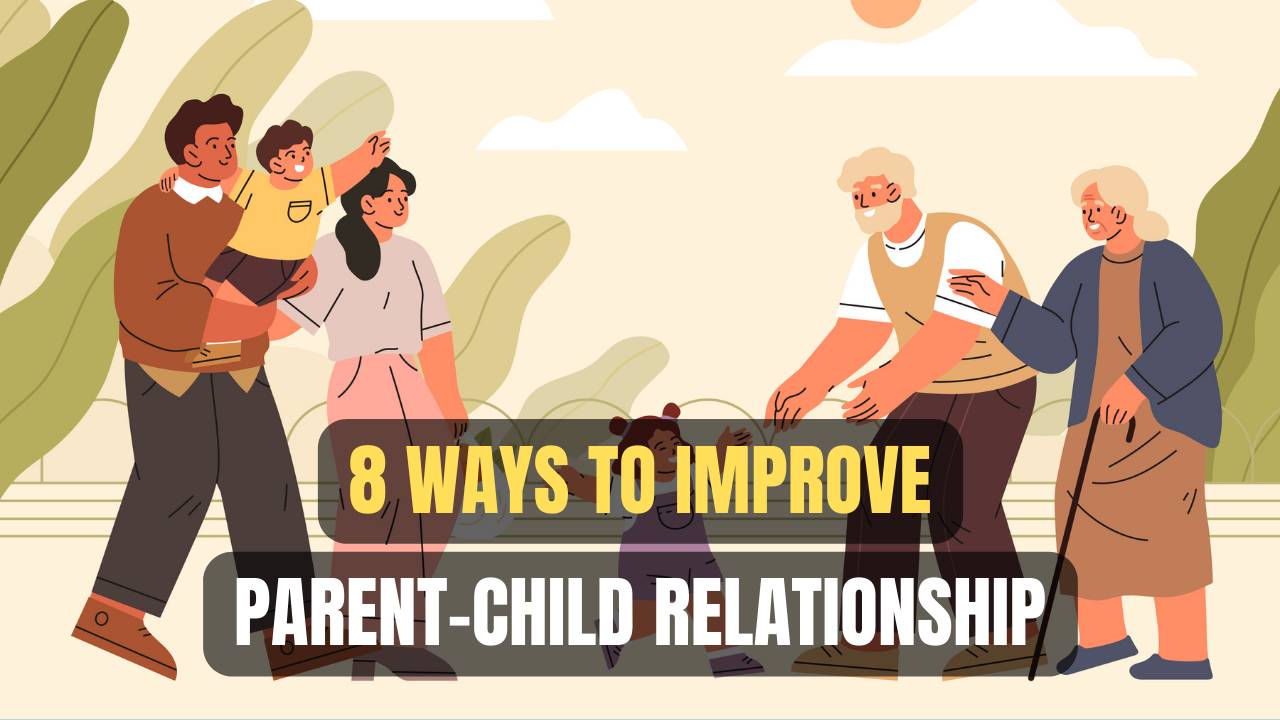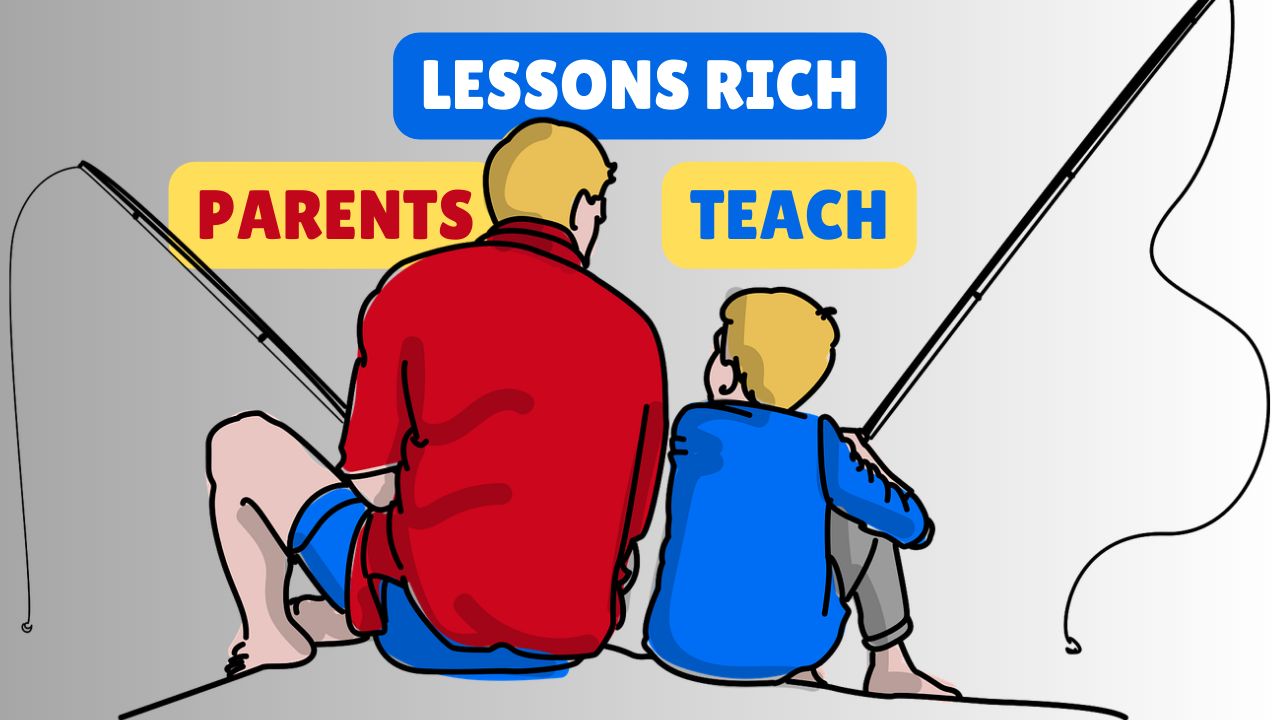8 Ways to Improve Parent-Child Relationship
Learn 8 Ways to Improve Parent-Child Relationship. Build stronger connections, foster open communication, and nurture a loving family dynamic.

There’s no such thing as a perfect family. As parents, you may think you’re always doing what’s best for your child because you love them. But sometimes, those actions may not be as healthy as you intend. As children grow into their teenage years, this is often when things start to change. Arguments may become more frequent, misunderstandings increase, and you might find yourself wondering, “What happened to the sweet child I used to play with? We’re here to assist you in finding answers to this prevalent worry. Here are eight effective ways to strengthen your relationship with your teenager.
Table of Contents
1. Hug Each Other Daily
Psychologist Janet Kiecolt-Glaser notes that physical contact becomes increasingly important as we age. Hugging is not just a sign of affection; it’s a natural stress reliever. As teens grow older, they may resist hugging their parents because it’s not “cool” anymore. However, a daily hug can serve as a physical reminder that they’re not alone. It provides both physical and emotional support, which are equally crucial for fortifying relationships.
2. Turn Off Technology During Interactions
In our tech-driven world, it’s hard to disconnect. You don’t have to go off the grid, but it’s beneficial to put your phone on silent when spending time with your family. This reduces the temptation to check every email or text and allows you to focus on the moment. Whether you’re in the car or at home, turning off distractions like music or phones creates opportunities for meaningful conversations. While music can be a bonding tool, there are times when undivided attention is essential.
3. Connect Before Major Transitions or Decisions
The teenage years are full of transitions and important decisions. As your child navigates this period, they may feel uncertain about the direction of their life. It’s important to reach out and show that you’re there for them. Offer advice and insights, but avoid dictating their choices. Let them figure out what they want to do while being supportive and understanding.
4. Make Time for Quality One-on-One Interaction
As responsibilities pile up, it’s easy to put family time on the back burner. However, it’s vital to set aside time for quality one-on-one interaction with your teenager. Whether it’s 15 minutes of meaningful conversation each day or an hour on the weekend to cook dinner together, these moments strengthen your relationship. Don’t let the busyness of life create distance; make an effort to stay connected.
5. Encourage Emotional Expression
Emotions can be messy, but they are crucial in building a strong relationship. Don’t dismiss your teenager’s feelings, especially during arguments. Regulating emotions is difficult, but it’s important to communicate openly. If your child is hurting, don’t neglect their feelings. Emotions, if ignored, can build up and eventually explode, causing more harm than good.
6. Listen to Understand, Not to React
When you’re upset with your child, it’s easy to listen just to confirm your anger. Instead, take the time to understand where they’re coming from, even if you disagree with their actions or opinions. Reacting with anger may lead to more resentment and hinder communication. Work through differences by broadening your perspective and finding a solution that benefits both of you.
7. Respect Boundaries
Healthy relationships are built on respecting boundaries. As your teenager seeks more privacy and freedom, it can be challenging as a parent. However, good parenting involves allowing them to make mistakes and learn from them. Don’t rob them of the opportunity to grow. Instead, create a safe space where failure is normalized, and trust can be built.
8. Catch Your Child in the Act of Doing Something Right
Teenagers often struggle with self-confidence, especially under the pressures of peer influence. Instead of focusing on their mistakes, recognize and praise the things they’re doing right. This positive reinforcement not only boosts their self-esteem but also shows that you’re paying attention to them. It’s a powerful way to support and encourage them through challenging times.
Is your relationship with your teenager facing challenges? What changes would you like to see? More importantly, what steps are you willing to take to make things better? Remember to feel free to share your opinions in the comments section below. Thank you for reading!
If you want more Luxury Lifestyle blogs then you can check our website. (Click)
If you want more content like this then click here (Click)













Post Comment